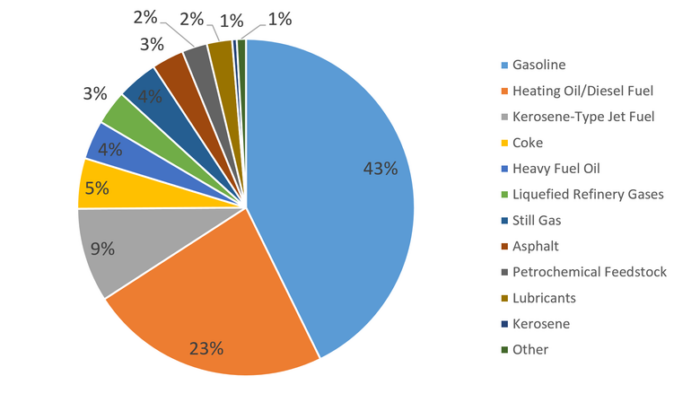Perpetual Motion Machines, Patents, and Leading Polluting, Depleting Industries
I spoke with the CEO of a major polluting, depleting company yesterday, among the biggest in the world. You know the company. It fundamentally depends on burning fossil fuels. It’s not a car company, but I’ll use cars as a concrete example for clarity.
Someone there asked him about sustainability. He acknowledged it as existential—I think implying for his company, his industry, and humanity. He talked about many innovations being developed in the field. His industry is pursuing the equivalents of what in the car industry would be efficient motors, electric engines, more aerodynamic shapes, computers optimizing routes, and so on.
He didn’t acknowledge that if you make something more efficient but it still pollutes and depletes, then if you use the efficiency gain to do more of the thing, you don’t reduce pollution or depletion. You usually increase it. In cars, making them more efficient leads to more people able to afford them, which leads to more cars, among many systemic effects. The problem with our pollution and depletion aren’t that we’re doing it inefficiently, but that we’re doing it at all. Doing it more efficiently accelerates rates of extraction, which accelerates pollution and depletion, independent of the method. Each and every output of oil pollutes and depletes.

We Can Learn From the Patent Office
But the main point is what we can learn from the patent office and perpetual motion machines. The patent office stopped accepting applications for them. A perpetual motion machine is impossible, so resources spent on developing them are wasted. You can make a machine more efficient and therefore approach perpetual motion, but you only reach the physical limits of the machine, which are a positive number.

None of the innovations he spoke about work today, but as far as I could tell, none of them could reduce the industry’s polluting and depleting. Resources spent developing these advances are wasted. As with perpetual motion machines, this industry can make itself more efficient and therefore approach sustainability, but you only reach the physical limits of the machine.
A car engine doesn’t approach zero waste. It approaches some waste. You can’t make the industry sustainable (short of dropping human population to below a small enough number of people, in which case you can use biofuels only for energy and I suspect you could actually close loops on minerals. I’d guess that number of people is well below one billion, but I’m just guessing.).
The equivalent of the patent office solution is to what we also figured out with trying to make racially segregated schools separate but equal, to sell cigarettes to children healthily, to make Apartheid or slavery democratic, and to make child labor consensual: none of them are possible so we stopped them. We didn’t keep improving them, though we could have.
The Leadership Answer
The leadership perspective on chasing something impossible is to stop. Promoting hope for something impossible doesn’t help, even if people feel hopeless and you want to make them feel better. The Spodek Method gives people hope and helps us change culture so we don’t chase impossible proposals. It’s a leadership technique.
The Opportunity for a Great Leader
The opportunity for a great leader is to do what Abraham Lincoln did with slavery: not make it kinder and gentler when it can never become kind or gentle. What Mandela did with Apartheid: not make it more fair when it can never become fair.
The opportunity for a great leader is to end the industry. The leader who does will go down in history as one of the greatest of all time. Their competitors won’t take that firm’s abandoned market share, not if they do it effectively. Their competitors will have to follow. Yes, it’s hard to imagine, but when England banned the slave trade in 1808, other slave empires followed. They did again in 1833, when it banned slavery. Yes, I’m eliding huge challenges, but none on the scale of things we’ve done before, like mobilize nations to fight Nazis and to reach the moon.
Not only can we achieve similar results in sustainability, billions of people crave leaders of industry to do so.
Read my weekly newsletter

On initiative, leadership, the environment, and burpees